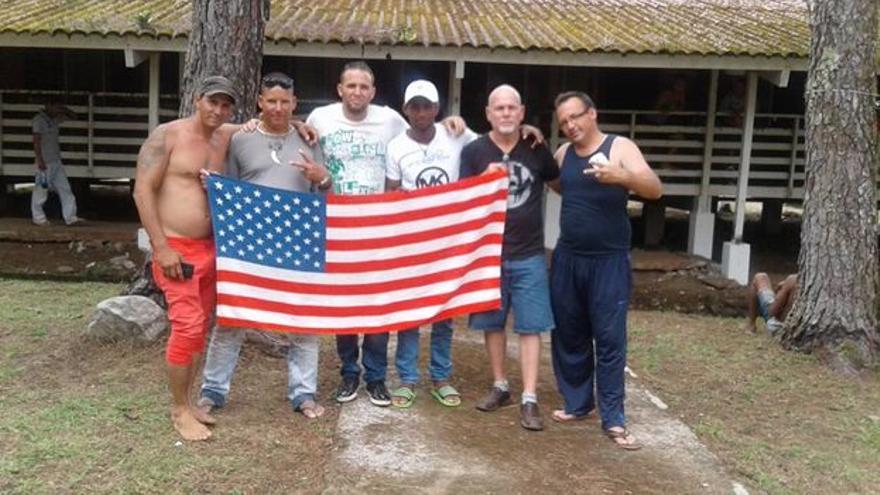
![]() 14ymedio (with information from agencies), 24 January 2018 — The United States and Cuba addressed bilateral cooperation on the issues of irregular migration and drug trafficking in two new technical meetings held this Monday and Tuesday in Florida. The meetings coincided with the publication of figures from the US Department of Customs and Border Protection, showing that in the last three months of 2017, 1451 Cubans unsuccessfully tried to enter US territory.
14ymedio (with information from agencies), 24 January 2018 — The United States and Cuba addressed bilateral cooperation on the issues of irregular migration and drug trafficking in two new technical meetings held this Monday and Tuesday in Florida. The meetings coincided with the publication of figures from the US Department of Customs and Border Protection, showing that in the last three months of 2017, 1451 Cubans unsuccessfully tried to enter US territory.
The migrants were detained at US/Mexican border points such as El Paso, Laredo, San Diego and Tucson. In the last fiscal year (ending in September), 14,592 Cubans entered through these same entry points, a figure much lower than the 41,523 of the previous year, when the wet foot/dry foot policy was still in effect.
The end of that policy has not only reduced the entry of Cubans to the United States by land, but also decreased the number of rafters attempting to enter by sea. During the first six months of 2017, 322 Cubans were intercepted at sea, compared to 2,295 in the same period of 2016.
For the fiscal year as a whole — October 2016 through September 2017 — 1,934 Cubans tried to enter the country by sea through the Florida Straits. That figure is a huge reduction compared to the previous fiscal year, when 7,411 people were intercepted, and even with 2014-2015, where there were 4,473 detainees.
The technical meeting this week is the eighth between representatives of the Cuban Coast Guard and the United States Coast Guard, according to a brief statement issued by the Cuban Embassy in Washington on Wednesday.
In this round, the statement said, the two countries talked about “ways to increase bilateral cooperation in confronting irregular migration and drug trafficking, as well as search and rescue operations.”
The meeting “took place in a climate of respect and professionalism,” the statement continued, and both delegations “agreed on the importance of advancing cooperation in this area” and “agreed to continue these technical meetings in the future.”
In recent days, the Cuban government has reported several technical meetings in Washington with US officials on cybersecurity, drug trafficking and terrorism, meetings that the State Department has not commented on and which have been given a very low profile in the American capital.
Relations between the United States and Cuba are going through a very delicate moment because the US government accuses Cuba of knowing who perpetrated the alleged acoustic attacks, between November 2016 and August 2017, on 24 of their officials on the island. The US believes that the Cuban government is refusing to say who the guilty party or parties are and, in addition, failed to protect US personnel from the attacks.
Although Cuba denies these assertions, the United States reduced its embassy staff in Havana to a minimum last September because of this crisis, and expelled 17 officials from the Cuban legation from Washington.
This is in addition to measures to limit trade and travel of Americans to the island, all initiatives that have alienated the two countries after the hope that accompanied the thaw initiated by the former president Barack Obama.
The US announced on Monday the creation of a working group to expand Internet access and independent media in Cuba, one of the measures outlined in the memorandum that sets out President Donald Trump’s policy toward the island, which is intended to paralyze the opening without suspending diplomatic relations.
_______________________
The 14ymedio team is committed to serious journalism that reflects the reality of deep Cuba. Thank you for joining us on this long road. We invite you to continue supporting us, but this time by becoming a member of 14ymedio. Together we can continue to transform journalism in Cuba.
